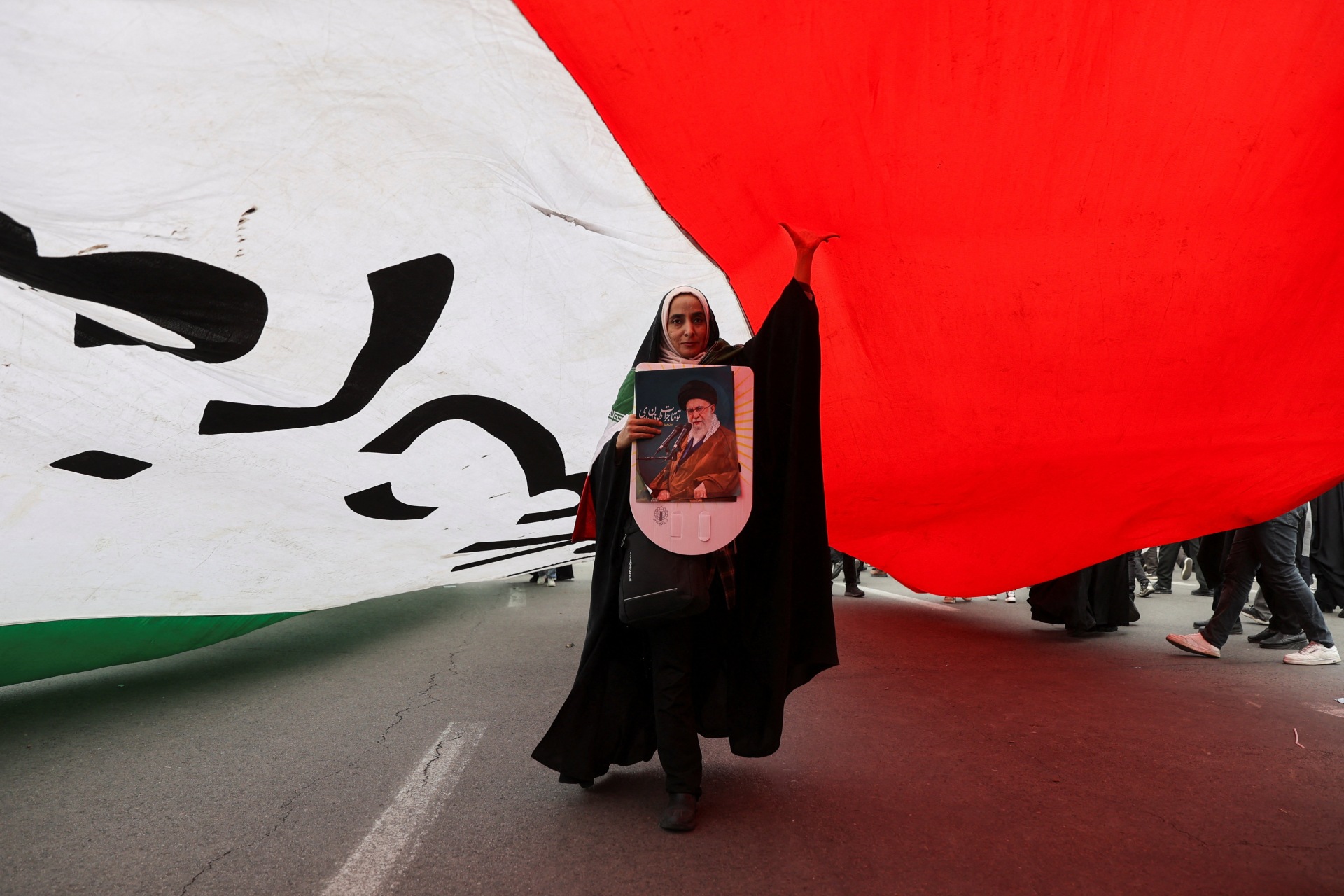Curtailing the Subsidy War Within the United States

BY
- Edward AldenSenior Fellow
- Rebecca Strauss
Read Edward Alden’s accompanying blog post.
Each year, U.S. state and local governments spend tens of billions of dollars to lure or retain business investment. The subsidies waste scarce taxpayer dollars that could better be used to strengthen public services such as education and infrastructure or to lower overall tax burdens to create a more favorable investment climate. No state wants to dole out such subsidies, but most fear losing jobs to competing states if they refuse. States should take steps to curb subsidies, beginning with greater disclosure and cost-benefit analyses, and building up to a multistate agreement that creates strong disincentives for continuing subsidies. Existing international arrangements provide models and tools for achieving this.
The Problem
State and local governments use targeted subsidies to attract or retain specific businesses. The subsidies can be in the form of tax breaks, cash payments, generous loan terms, or discounted public services. There is no formal accounting of these subsidies in government budgets. The best data so far, compiled by the New York Times, puts the national total at more than $80 billion annually, which is equal to 7 percent of state and local tax revenues. The number of subsidy packages has fallen since the 2008 recession, but the number of new “megadeals” signed per year costing at least $75 million has doubled. In 2013, Washington State granted a subsidy package to Boeing worth $8.7 billion—by far the largest to a single company in U.S. history. Surprisingly few states make serious estimates of the potential cost of these incentives, and few cap the total benefits, potentially leaving state and local governments exposed to large losses.
Although many states dislike the subsidy wars, efforts to curb them have usually failed.
Rarely do the benefits of these subsidies exceed the costs. In highly mobile industries, like film production, the subsidies do lure business from other states, but any job creation is short-term and film crews are usually imported. In many other industries, subsidies have less influence on location decisions; manufacturers, in particular, require local networks of suppliers and employees with specialized training. Local governments usually lack the sophistication to negotiate successfully with big companies, so they end up subsidizing businesses that would have invested in the state regardless. Public money is wasted that could have gone to lower the overall corporate tax rate or to more productive investments like education and infrastructure—assets that matter more for most business location decisions than one-off tax breaks.
Although many states dislike the subsidy wars, efforts to curb them have usually failed. After an especially cutthroat subsidy fight for a Boeing plant in the early 1990s, for example, Illinois governor Jim Edgar led an unsuccessful campaign to persuade states to call a truce. Governors in the New York City metro region agreed to a “nonaggression pact” in 1991 to refrain from running ads aimed at luring away businesses from each other. Within months, however, New Jersey violated the terms and the deal collapsed. Some counties in metro areas, like Dayton and Denver, are cooperating to limit subsidy competition. Kansas and Missouri are considering a halt within Kansas City, which straddles both states. These are exceptions, yet there is also clear understanding of the folly of subsidy wars; forty states have restrictions on local municipalities using state funds to entice jobs away from another part of the state. The U.S. Congress could curtail the subsidy war, but has chosen not to do so. Historically, Congress has been reluctant to interfere in what are seen as state-level prerogatives.
International Models for Controlling Subsidies
The federal government’s refusal to intervene in controlling state subsidies is ironic because the United States has led international efforts to get all countries to reduce subsidies that distort business location decisions. The 1994 agreement that created the World Trade Organization (WTO) restricts most “specific” subsidies, or those available only to particular enterprises or industries, and requires signatories to report all subsidies. The language distinguishes targeted subsidies for certain companies or industries, which can be challenged by other countries, from broad tax cuts or other forms of government support like research-and-development spending, which are permitted. The WTO has a dispute settlement mechanism for resolving complaints that allows for trade sanctions against violators. The United States has launched disputes in several cases, such as European subsidies to the Airbus consortium. The U.S. Trade Representative has declined to dispute other subsidies, however, such as Canadian incentives that have lured filmmakers from California. Other countries have also challenged U.S. subsidies. In a 2011 case brought by the European Union (EU), the WTO ruled that some state tax breaks for Boeing were illegal trade subsidies, though they have yet to be repealed. The executive branch has the power to require state and local governments to enforce such WTO rulings, but it has been cautious about exercising it.
The United States also led negotiations through the Organization for Economic Cooperation and Development (OECD) dating back to the 1970s that produced agreements to limit government subsidies to exporters through official export credits, such as those offered by the U.S. Export-Import Bank. There was no formal enforcement mechanism, but in practice if one country violated the OECD rules and offered financing on overly generous terms, the United States or other countries would match those offers in an effort to discourage violations.
Europe is well ahead of the United States in controlling such subsidies. The European Union tightly regulates business subsidies by member states with its “state aid” law. Member states can only give individual businesses a subsidy under certain conditions—for example, if the subsidy benefits a region that is economically depressed or if it serves an environmental purpose. Most subsidies are preapproved by the European Commission (EC), which carries out a cost-benefit analysis on a case-by-case basis. The EC regularly tallies and reviews existing subsidies, and localities have to list subsidies online, along with the companies that are significant beneficiaries. Member states found in violation of the state aid law can face fines and other penalties.
None of these systems is perfect. The WTO and EU state aid rules still permit a wide range of subsidies, and the dispute settlement process in the WTO is excruciatingly slow. The OECD arrangement on export credits has been weakened because big emerging countries like China and India have refused to participate. Despite the problems, each of these systems has established clear expectations that such subsidies should be discouraged and instituted rules for enforcement.
Recommendations
Reducing wasteful state subsidies to businesses will require a series of steps, starting with greater transparency and moving incrementally toward more enforceable rules. These measures would reverse a growing competition spiral in which states try to outbid each other for investments, and could provide a modest boost to state revenues.
The federal Commerce Department should do its own analyses of the costs and benefits of state subsidies.
- The Obama administration should require state and local governments to report all subsidies to a federal data warehouse, and make that data publicly available. The United States is already required to report these subsidies to the WTO, but administrations have done little to press the states for greater disclosure, even while demanding greater transparency by foreign governments. Such disclosure would make subsequent steps easier by highlighting subsidies for public scrutiny. An office in the Commerce Department that already collects some subsidy information to report to the WTO should be directed to collect and publish the data.
- States should require regular cost-benefit analyses of all business subsidies above a certain threshold. A new law enacted last year in Rhode Island, for example, requires the state to regularly reassess each of its tax incentive programs to determine whether such investments would have occurred regardless and how much of the economic benefit accrued to the state. The federal Commerce Department should also do its own independent analyses of the costs and benefits of state subsidies.
- States should revisit the idea of a compact to limit subsidies targeted at specific companies or industries. The place to start is with regional cooperative agreements since it is within a regional economy where subsidy competition can be most intense and destructive. The enforcement mechanism should initially be informal and modeled after the OECD export credit arrangement. If one state violates the pact’s terms, others would be free to match (though not exceed) the subsidy offer. And in the case of nonparticipating states, or other countries offering subsidies to attract investment, member states would also be free to match any subsidy offers. This avoids the competition escalation spiral and gives other states little reason to cheat because they will gain no advantage.
- The federal government should challenge more foreign business subsidies through existing WTO rules to prevent other countries from taking advantage of greater restraint by U.S. states. The United States should press for new, tighter subsidy rules in the WTO, building on a 2007 U.S. proposal in the Doha Round. U.S. efforts to curb its own state-level subsidies would add credibility to that proposal. The federal government should also require states to comply with WTO rulings on subsidies, enforcing through the courts if necessary.
- A successful voluntary system could create an appetite for a more robust federal role. The government, for example, could reward states by increasing federal development aid to those that adhere to subsidy rules, or restricting aid to those that do not, much in the way it uses federal dollars to encourage education reforms.
The politics will not be easy because of corporate opposition, but there are potential gains for both parties. Democrats should favor reducing corporate subsidies that rob state governments of revenue. Republicans should support ending government interference that distorts competition in the market; most subsidies go to big businesses, for example, rather than smaller ones, and the savings could be used for broader tax breaks that benefit all businesses. Restricting subsidies through state-to-state agreements also means that each state can decide voluntarily whether to participate. At a time when governments at all levels are straining to stretch every dollar out of tight budgets, there are strong incentives for such cooperation.t





